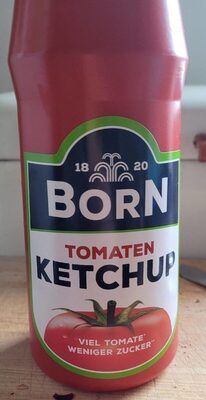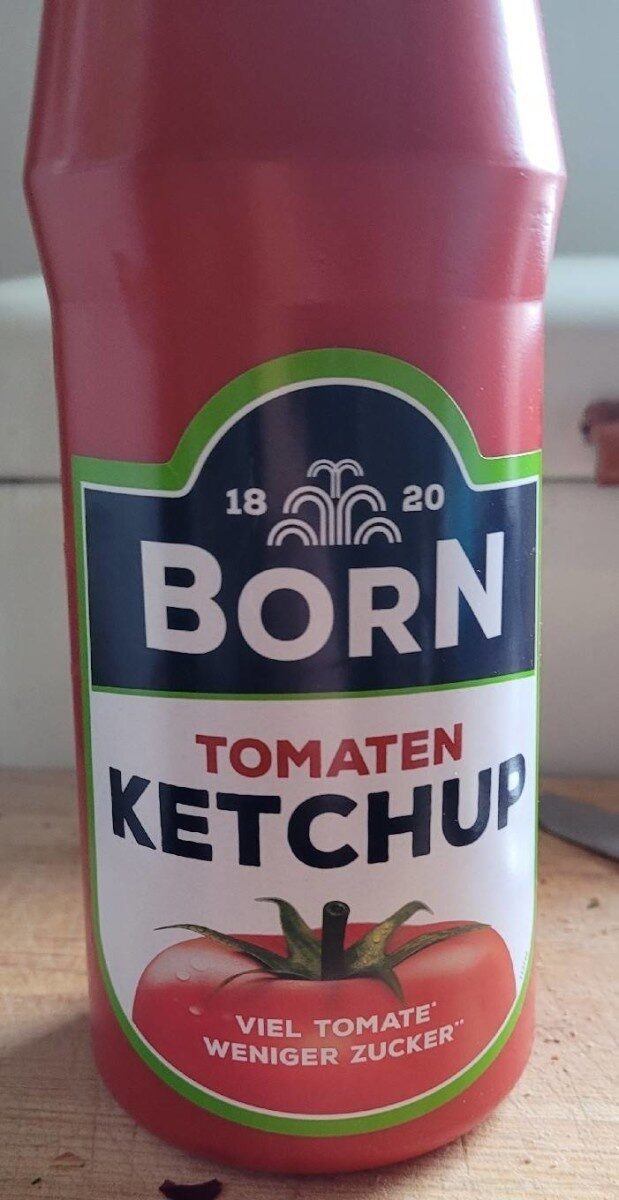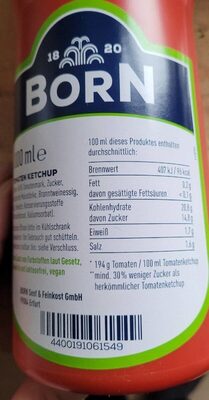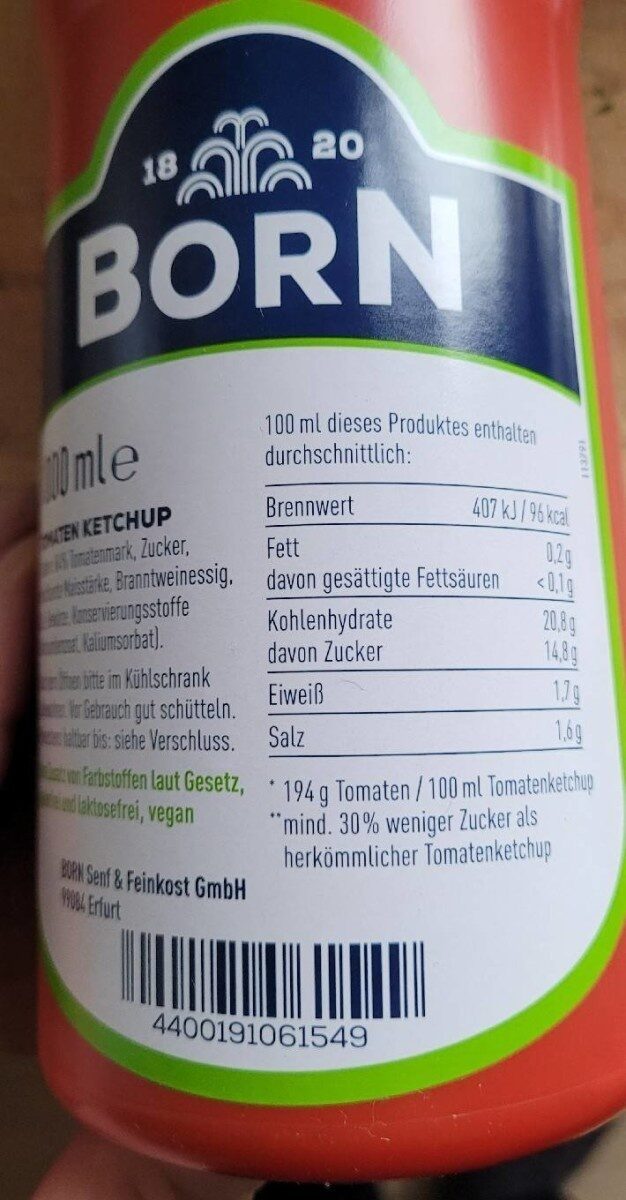Tomaten Ketchup - Born - 1000ml
This product page is not complete. You can help to complete it by editing it and adding more data from the photos we have, or by taking more photos using the app for Android or iPhone/iPad. Thank you!
×
Barcode: 4400191061549 (EAN / EAN-13)
Quantity: 1000ml
Packaging: Canned
Brands: Born
Categories: Condiments, Sauces, Tomato sauces, Ketchup, Groceries
Labels, certifications, awards: No gluten, Vegetarian, Vegan
Countries where sold: Germany
Matching with your preferences
Environment
Carbon footprint
Packaging
Transportation
Report a problem
Data sources
Product added on by openfoodfacts-contributors
Last edit of product page on by packbot.
Product page also edited by aleene, date-limite-app, ecoscore-impact-estimator, kiliweb, prepperapp, roboto-app, yuka.sY2b0xO6T85zoF3NwEKvlmxmcN6CniDkDxP5yGnWy9aMF8ayT85KzpH4K6s.
If the data is incomplete or incorrect, you can complete or correct it by editing this page.










